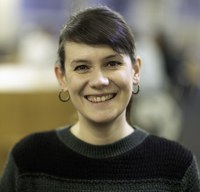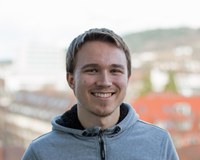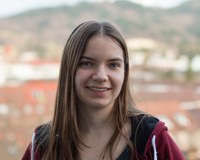Of fairness and friendship
Freiburg, Feb 20, 2020
Equal opportunities for everyone – regardless of origin, gender, belief system or political convictions. That is what the infamous Article 3 of the German constitution demands, laying the foundation for social consensus in the Federal Republic of Germany. But there is often a large gap between theory and practice. During the “World Day of Social Justice” on February 20, 2020, the United Nations is commemorating this idea. The campaign is a call for all of us to support equal opportunity. Franziska Heinzler sat down with three university groups from Freiburg to ask them what social justice means to them and how they seek to support it. One thing from the get go: All three initiatives are looking for fresh faces to get involved.
 Photo: Foto Sale/stock.adobe.com
Photo: Foto Sale/stock.adobe.com
 “In theory, there is equal opportunity in Germany when it comes to education, and theoretically anyone with the right grades can go to high school, get their Abitur and then study at university. In practice, however, things look different. Especially children and young people from families in which no one has a university education often do not even consider studying at all because they lack role models and financing is a major hurdle. Social justice would prevail if politics and society were to offer these children and young people more support. We encourage such students to be the first in their families to study. We inform them about the opportunities offered by studying and support them on their way from the beginning of their studies to successful graduation and career entry. It would be nice if this topic would be brought more onto the political agenda.”
“In theory, there is equal opportunity in Germany when it comes to education, and theoretically anyone with the right grades can go to high school, get their Abitur and then study at university. In practice, however, things look different. Especially children and young people from families in which no one has a university education often do not even consider studying at all because they lack role models and financing is a major hurdle. Social justice would prevail if politics and society were to offer these children and young people more support. We encourage such students to be the first in their families to study. We inform them about the opportunities offered by studying and support them on their way from the beginning of their studies to successful graduation and career entry. It would be nice if this topic would be brought more onto the political agenda.”
Elena Schick, volunteer for the organization ArbeiterKind.de
Photo: Jürgen Gocke
 “First and foremost, social justice means justice among all people and among the various nations. It also means that there is no discrimination and that friendships between different nations are fostered. As a university group, we try to be a link between German and foreign students at the University. On the one hand, because we bring together students from different faculties, on the other hand, because our university group consists of members from different nations. We want everyone to feel included. In the meantime, most of our meetings and simulations are held in English, which also removes the language barrier. We are committed to social justice, for example on ‘Human Rights Day,’ during which time we have a booth to sensitize other students and University members about the issues. And we also provide information about how the United Nations is working to achieve social justice.”
“First and foremost, social justice means justice among all people and among the various nations. It also means that there is no discrimination and that friendships between different nations are fostered. As a university group, we try to be a link between German and foreign students at the University. On the one hand, because we bring together students from different faculties, on the other hand, because our university group consists of members from different nations. We want everyone to feel included. In the meantime, most of our meetings and simulations are held in English, which also removes the language barrier. We are committed to social justice, for example on ‘Human Rights Day,’ during which time we have a booth to sensitize other students and University members about the issues. And we also provide information about how the United Nations is working to achieve social justice.”
Jacob Wagner, Director of the university group United Nations Freiburg
Photo: Max Orlich
 “For us, social justice means that everyone gets the same opportunities and the support he or she needs. And this should be done as directly as possible without roadblocks. We also have a working group that deals with sustainability. Thus, social justice also means that every generation has the same conditions. Weitblick Freiburg e.V. is committed to fair and equal educational opportunities worldwide. For example, we support a school project in Ghana and a partnership project in India. In Ghana, we have helped to build and equip a school. Recently we equipped the school library with books and computers. In addition, we are also active in Freiburg. Here, for example, we look after children once a week in a dormitory for refugees. We help them with their homework and do handicrafts together. And we also take care of fundraising. For example, we sell cake and coffee to collect donations and are thus self-funded.”
“For us, social justice means that everyone gets the same opportunities and the support he or she needs. And this should be done as directly as possible without roadblocks. We also have a working group that deals with sustainability. Thus, social justice also means that every generation has the same conditions. Weitblick Freiburg e.V. is committed to fair and equal educational opportunities worldwide. For example, we support a school project in Ghana and a partnership project in India. In Ghana, we have helped to build and equip a school. Recently we equipped the school library with books and computers. In addition, we are also active in Freiburg. Here, for example, we look after children once a week in a dormitory for refugees. We help them with their homework and do handicrafts together. And we also take care of fundraising. For example, we sell cake and coffee to collect donations and are thus self-funded.”
Nicole Hintz, board member of the association Weitblick Freiburg e.V.
Photo: Max Orlich

